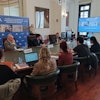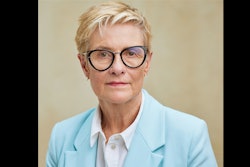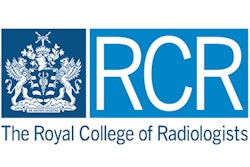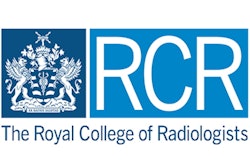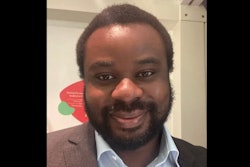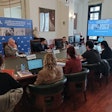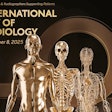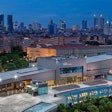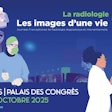While the Darzi report comes at a pivotal moment for healthcare in the U.K., doubling the number of CT and MRI scanners won't be good for radiologists, according to a blog post by Royal College of Radiologists (RCR) President Dr. Kath Halliday.
 Dr. Katharine Halliday.RCR
Dr. Katharine Halliday.RCR
Halliday's response to the review by Lord Ara Darzi, baron of Denham, on the state of the National Health Service (NHS) in England is punctuated by the political realities of budget constraints, difficulty catching up with post-COVID demand, and IT systems that "simply do not work," she wrote in her commentary on 18 September.
"Reform alone can only get us so far," Halliday noted. "Without additional investment to support the necessary developments, we will ultimately be unable to improve the NHS’s ability to meet the needs of patients and staff alike."
The recent government commitment to double the number of CT and MRI scanners threatens not to reduce but increase pressure on radiologists, Halliday said.
"While this expansion in equipment might seem beneficial in speeding up access, it risks massively delaying the time from scan acquisition to the patient receiving a diagnosis due to an unmanageable increase in scans," she wrote.
Additionally, while AI is making waves in radiology, promising to improve efficiency, it is not a cure-all, Halliday noted.
"Our evidence is used to demonstrate take-up across the country with 56% of NHS Trusts using AI for radiology," Halliday noted. "Radiologists will always be essential for interpreting scans, and the real challenge will be integrating AI in a way that complements our expertise."
Halliday gleaned five key takeaways from Darzi's lengthy report. Read the full response here. You can download the full report at https://assets.publishing.service.gov.uk/media/5a7c3a5b40f0b67d0b11fbaf/7432.pdf



